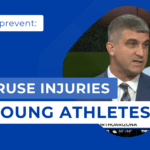Activities to Avoid After Hip Surgery
Hip replacement surgery, also known as hip arthroplasty, is always meant to be as uninvasive as possible. All standard hip arthroplasty measures aim to keep you safe and comfortable, as well as keep your recovery times low.
However, like any major surgery, you are not completely “ cured” as soon as the surgery itself ends. The healing process can be a slow one for many people, and there are certain things that you should avoid doing if you want to ensure clean, reliable, and healthy post-surgery recovery. The less you strain your body, the faster it will heal and accept your new hip prostheses or surgical corrections.
Healing from hip surgery will feel different depending on the kind of surgery you received and the condition that it was meant to prevent or fix. Recovery can depend on a lot of different factors, but one of the most important is the way that you move while your hip heals.
Here are some major activities to avoid after hip surgery, as well as certain motions that can be counterproductive to your healing process. Regardless of why you had the surgery, it is important to protect the affected hip in day-to-day life, especially during the early stages of recovery.
90-Degree Flexes
Many kinds of joint surgery involve a 90-degree rule, with hips being a very common example. Flexing your hip past 90 degrees (either up or down) can increase the chance of a dislocation, which can be disastrous if you are still in the early stages of recovery.
While it may sound easy to avoid this kind of movement, it can be a major part of everyday life. Sitting down, standing up, putting on socks and shoes, or even picking something up off the floor can all result in above-90-degree angles, so avoiding them as much as possible is recommended.
If possible, enlist the help of somebody else who can handle these situations with you, or talk to your physical therapist to learn techniques for avoiding hip dislocation during these motions.
Note that the 90-degree rule is not exact. There can be times when your hip may dislocate at around 80 degrees or even 70. You need to stick within your limits and avoid pushing yourself too hard, even if that means keeping your hips from moving as far as they normally would.
Thigh Twists
An internal rotation – twisting your thigh inwards – can be a major worry if you are still trying to recover. By keeping your toes pointed directly forward, you can be sure that your thighs are not turning in, which would put a lot of additional stress on your healing hip.
This does not just apply when standing or walking, either. Sitting and lying down will not protect you from the potential damage of an internal rotation, so you want to be as careful as possible when adjusting your position.
While it might sound easy to avoid twisting your thigh, you need to consider what you will be doing on a day-to-day basis. Even turning around quickly can mean twisting that thigh, so try to be more deliberate in your movements and never put excess strain on your leg if you can avoid it.
Twisting your thighs outward might not be as inherently dangerous, but it still should not be done when it is not necessary. By keeping your leg straight, you are enabling much better healing, so deviating from that can always run the risk of causing problems in the near future.
Crossing your Legs
When you cross your legs, you are twisting your hip in at least two directions in rapid succession. This can mean unnecessary strain and stress, especially if you are still in the earliest stages of recovering.
Instead, avoid crossing your legs at all costs. Sleep supine (on your back) when possible, and try to keep a pillow between your legs so that they will not cross during the night. If you are sitting on the floor, try to keep your legs straight if possible.
If you have a habit of crossing your legs, then try to break it as soon as you can. Use positions that do not allow easy leg-crossing, and do not sit down on the floor in a pose that lets you cross them easily. If you can avoid it, then make sure to do so.
Lying Stomach-Down
If you lie or sleep on your stomach, then you increase your chances of hip dislocation. Since you often twist your hip in this position, it can end up dislocated easily – and can even dislocate itself during the night, which you may not initially notice.
Always lie on your back when possible. The exact pose does not matter as long as you can keep your hip straight and in a consistent position since this allows for easier healing and removes some of the pressure that other poses would offer. It can also make it easier to heal during a night of deep sleep.
Lying on your stomach might feel comfortable, but it is important to prioritize your hip health over everything else. Getting into positions where you can’t roll over onto your stomach is a good technique, especially if you have a habit of moving onto your stomach in your sleep.
Lying Hip-Down
Lying on your stomach is just as bad as lying on the healing hip. Putting excess pressure there can result in serious issues, many of which will directly impact your chances of healing properly. In some cases, you could end up doing damage to your hip, requiring even more corrections.
Sleeping on the other side can work, but it is best to sleep flat on your back. As mentioned above, this avoids putting any excess pressure on your hip and also gives you a more consistent posture while sleeping that allows for easy healing.
Remember that this pressure is not always obvious. Even if it does not feel like you are straining your hip, you want to keep your legs in a healthy, safe pose that will enable proper healing. Even if it does not hurt, a sideways position could be damaging your recovery time and chances of success.
Speak with an Orthopedic Specialist Today
Are you suffering from a recent injury? Make an appointment with one of our orthopedic specialists today to start your healing journey. OrthoArizona has nearly two dozen offices throughout the Valley, each focused on quality care, compassion, and excellent customer service. Since 1994, OrthoArizona has been dedicated to compassionate care of the highest quality.
The advice and information contained in this article are for educational purposes only and are not intended to replace or counter a physician’s advice or judgment. Please always consult your physician before taking any advice learned here or other educational medical material.











